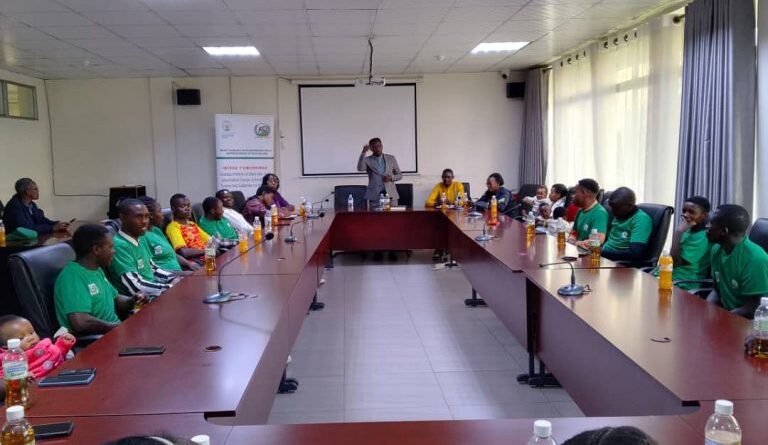Empowering Rwanda’s Youth: The AJPRODHO-JIJUKIRWA Project
The AJPRODHO-JIJUKIRWA project, in partnership with the Ministry of Youth and Arts, is set to empower 100 young Rwandans by transforming their talents into valuable skills, providing a pathway out of poverty. This initiative targets the youth of Gakenke and Nyabihu districts, focusing on personal growth, substance abuse prevention, and avoiding unplanned pregnancies. Participants will receive vocational tools aligned with their unique talents and abilities, aiming to foster self-reliance and employability.
Kevine Mudahogora, a young mother who experienced an unplanned pregnancy, highlighted the project’s importance, stating, “This initiative is perfectly timed. For someone like me, it offers essential skills and the opportunity to find employment, enabling me to support and raise my child effectively.”
Similarly, Jean Baptiste Gatabazi, a former resident of the Wawa Rehabilitation Center, expressed optimism: “We possess skills that we can put to use. The AJPRODHO-JIJUKIRWA project will equip us with the necessary tools to practice our trades. I am confident this will help us settle down and earn a living, steering clear of negative behaviors.”
The project includes a diverse group of 50 participants from Gakenke and 50 from Nyabihu, comprising individuals from rehabilitation programs, young mothers, school dropouts, and those with vocational training but lacking resources. The program will begin with training in daily conduct and behavior, followed by lessons to enhance vocational skills, as outlined by project management on May 16, 2024.
Marie Claire Uwamahoro, Vice Mayor of Gakenke District in charge of social affairs, underscored the project’s potential impact: “We deeply appreciate the AJPRODHO-JIJUKIRWA project’s initiative, as it will engage our youth in productive activities, fostering their personal development.”
Dr. Fulgence Mpayimana, Executive Secretary of the AJPRODHO-JIJUKIRWA project, emphasized the importance of investing in the youth, recognizing them as the nation’s future workforce. “We chose to work with the youth because they are the backbone of our nation. Our goal is to build their capacities so they can create jobs based on their skills. The expected outcome is to see these young individuals, who were once struggling, now engaged in activities that promote their development,” he said. “This will also help reduce the prevalence of drug abuse and other harmful behaviors.”
The project will run for one year, with its impact being closely monitored and evaluated. The achievements will serve as a foundation for future initiatives aimed at continuing support for Rwanda’s youth.

